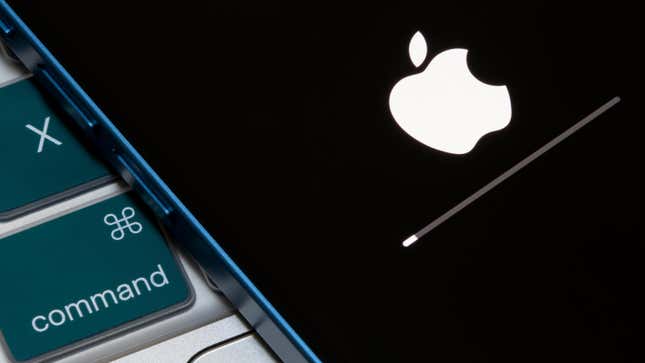
If you own an iPhone, iPad, or a Mac, I’d highly recommend updating your device ASAP. Apple just released one of its new Rapid Security Response updates in an effort to patch a software vulnerability that the company says may be seeing active exploitation in the wild.
How To Prep Your iPhone or iPad Before Selling
The bug in question—which impacts Apple’s Safari WebKit browser engine—could lead to arbitrary code execution. Hypothetically speaking, what this means is that a cybercriminal could deploy malware onto a targeted device by tricking a user into opening malicious webpages, Bleeping Computer writes.
Patches for the bug, which has been catalogued as CVE-2023-37450, are available for iOS 16.5.1, iPadOS 16.5.1, and macOS Ventura 13.4.1.
As with most cases like this, there are scant details available about what the actual threat is (there’s no mentioning of a specific hacking group’s involvement, nor are there stats on how many people may have been targeted). The alert merely says that the issue was reported by an anonymous researcher and that there’s evidence of active exploitation of the bug in the wild. With that vague and unsettling knowledge in mind, there’s really nothing you can do except update your software and hope for the best.
Luckily, Rapid Security Responses are designed to be downloaded automatically onto Apple devices. That said, you might need to restart your device to complete the update. To ensure that you update effectively on your iPhone or iPad, you can head to Settings > General, and then click Software Update. To update macOS, click on the Apple menu , then head to System Settings. Click General in System Settings, then click Software Update. Of course, if you have automatic updates turned on (and you have also turned on “Security Responses & System Files”), you should be good to go. Head to Apple’s webpage for full details on how to do all this.
Apple’s Rapid Security Responses were debuted by the company earlier this year as a way to more efficiently deliver security fixes to users. The “rapid” updates do not require a broader software update as past security updates did and are instead targeted at specific security issues. This efficiency and ease of use is great but it’s also a sign that Apple is battling an ever larger landscape of threats. Indeed, this is the tenth zero-day vulnerability that Apple has patched this year alone.






